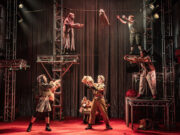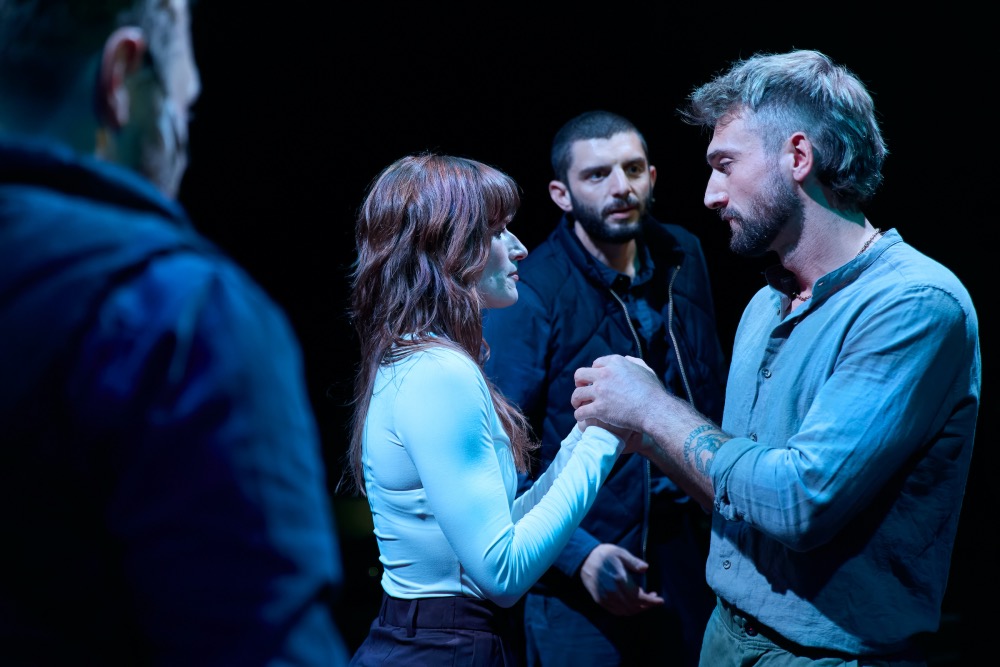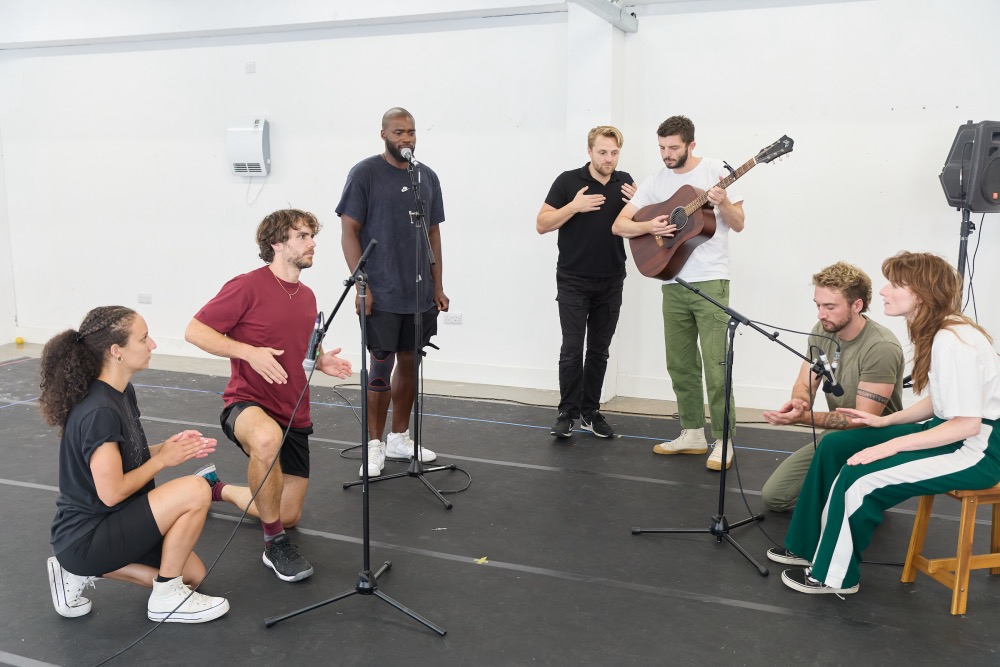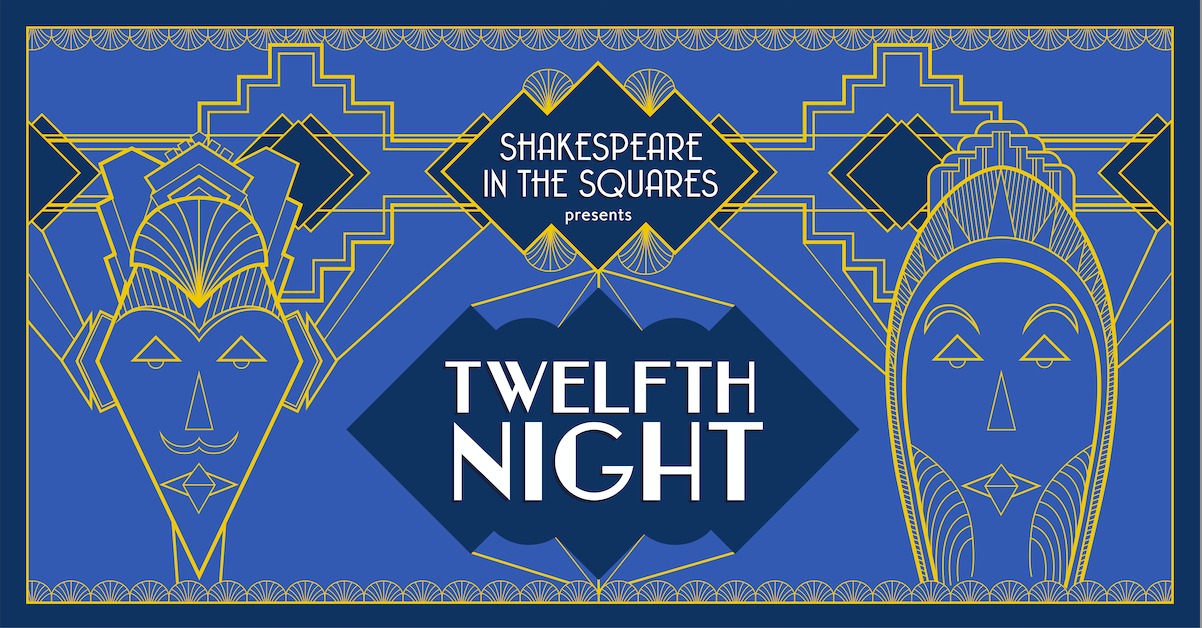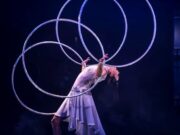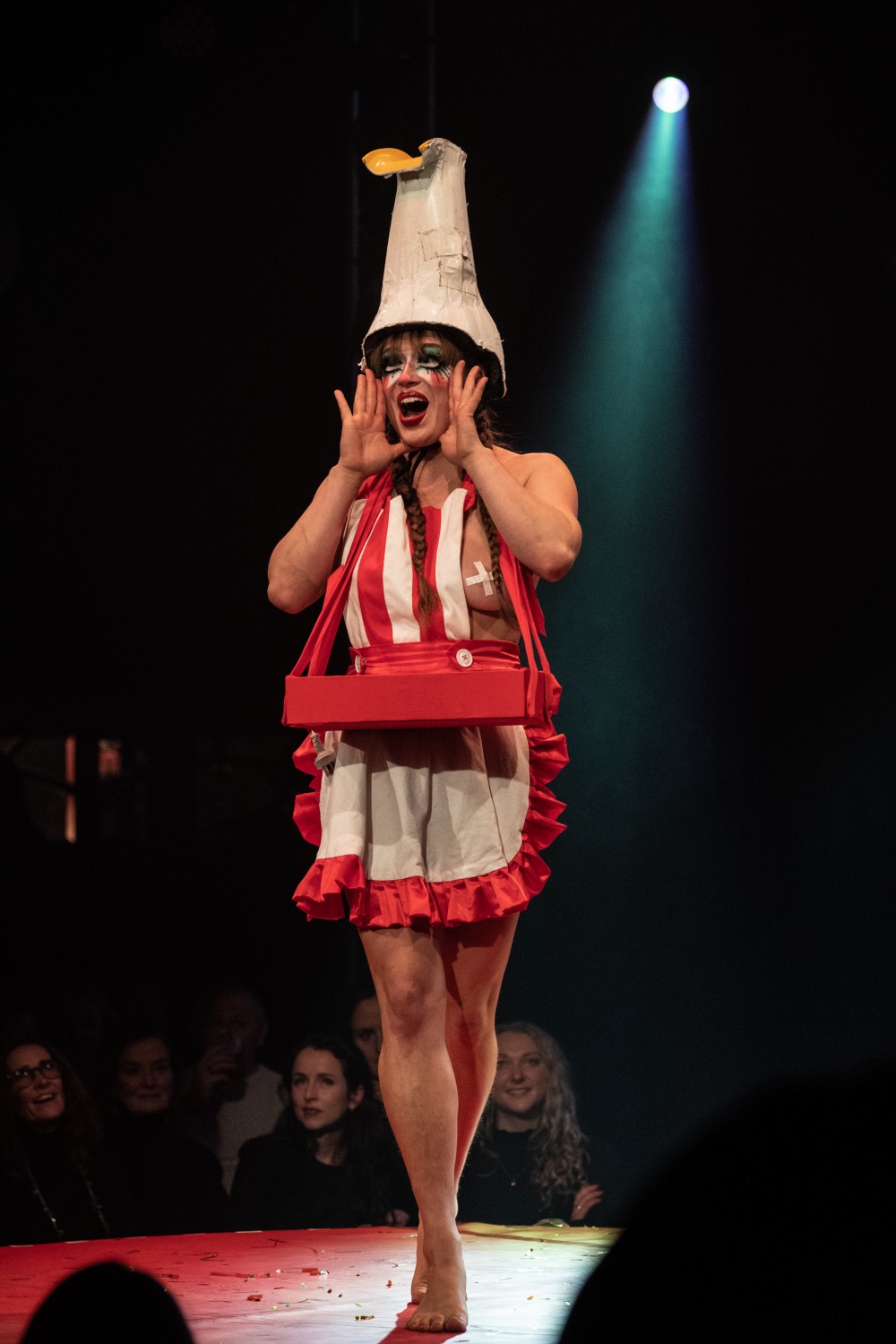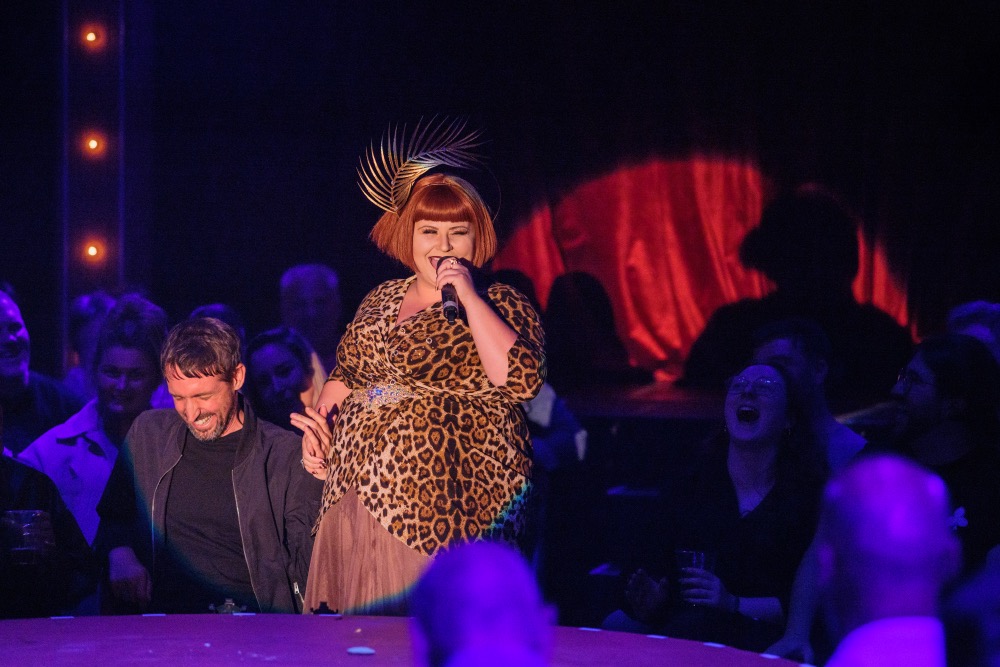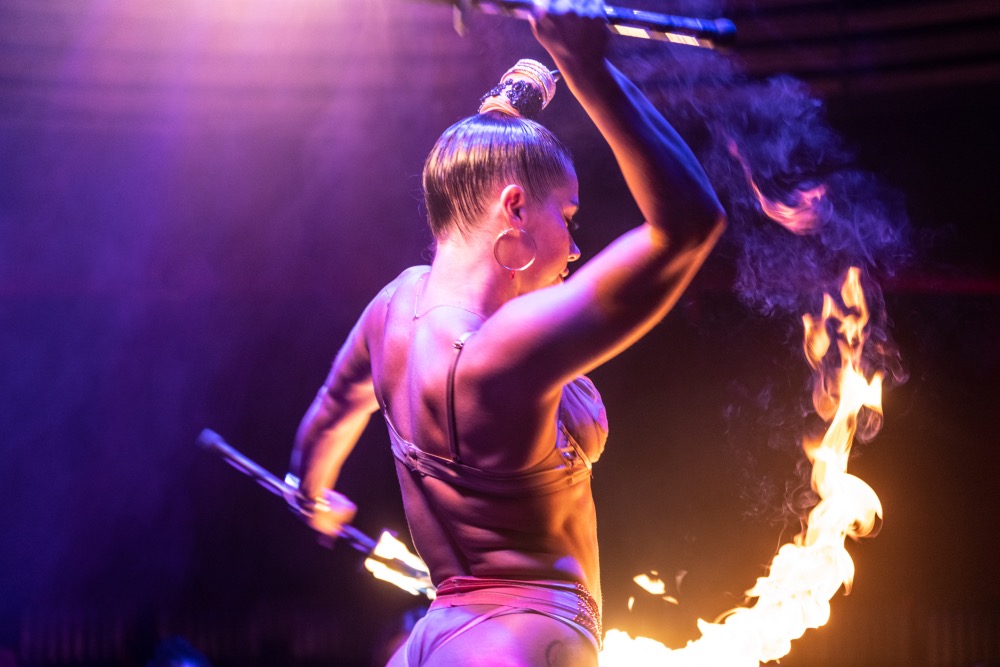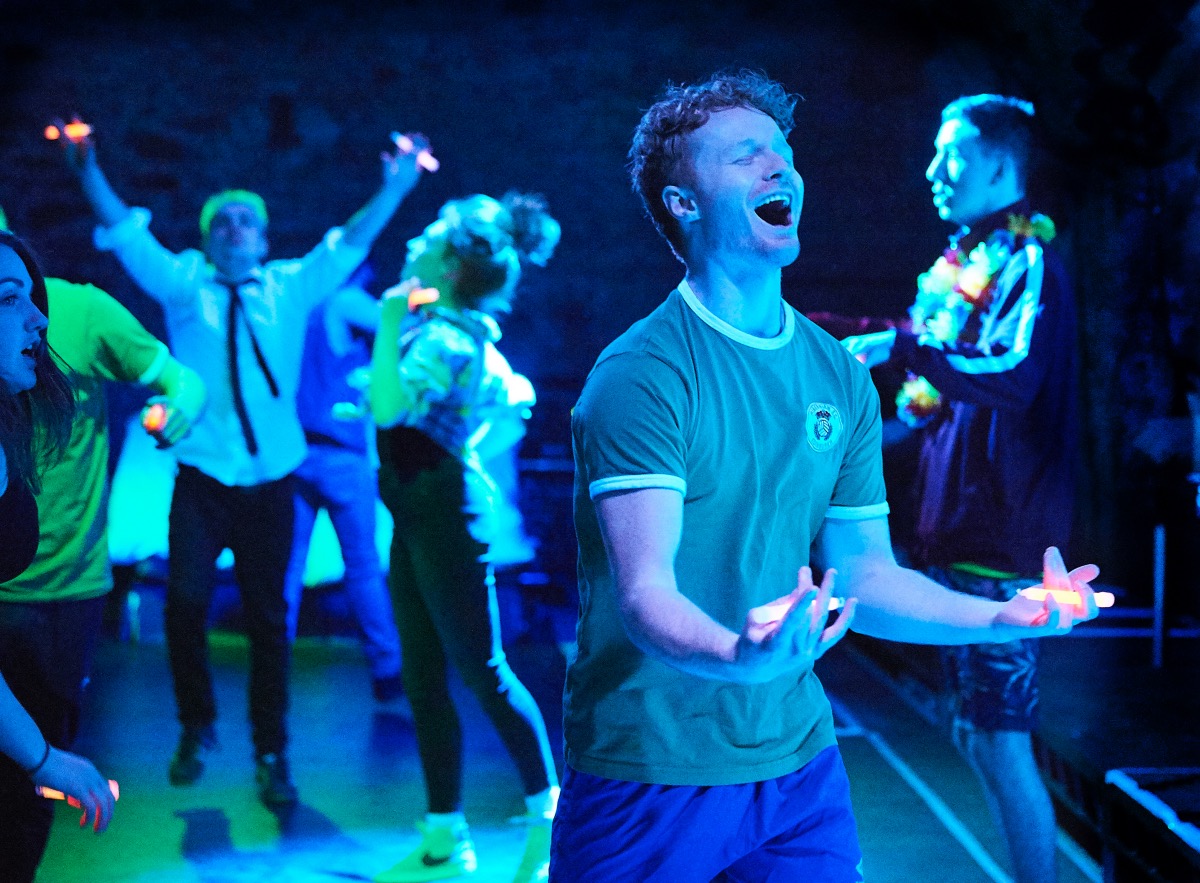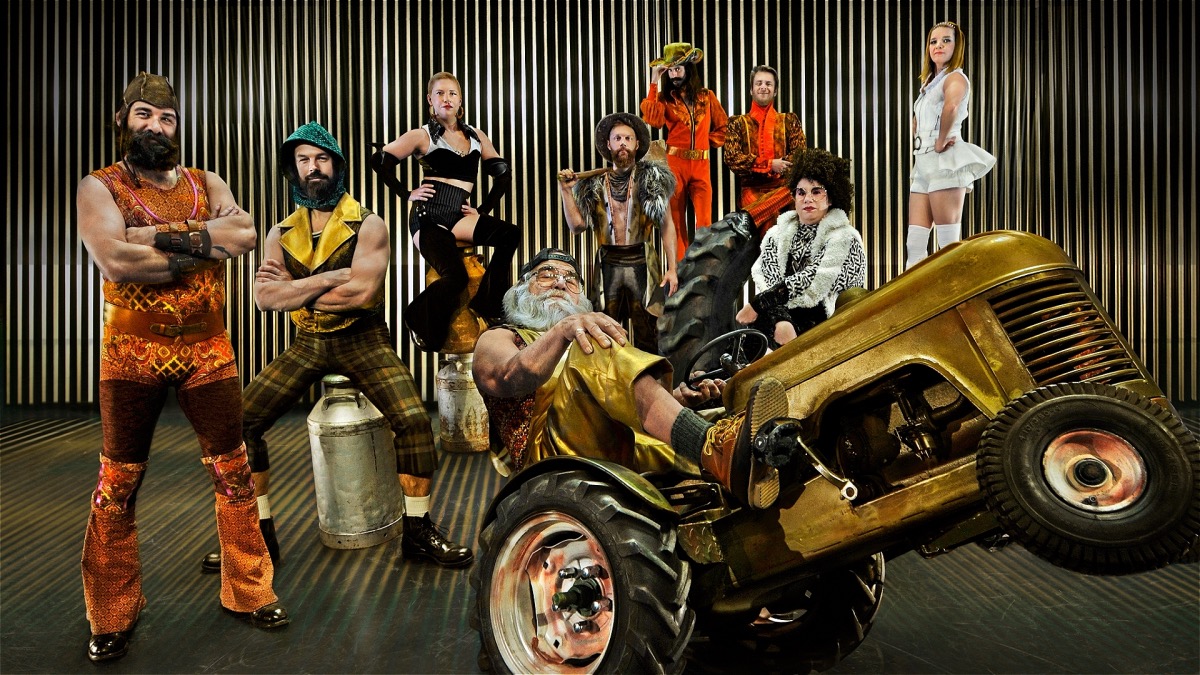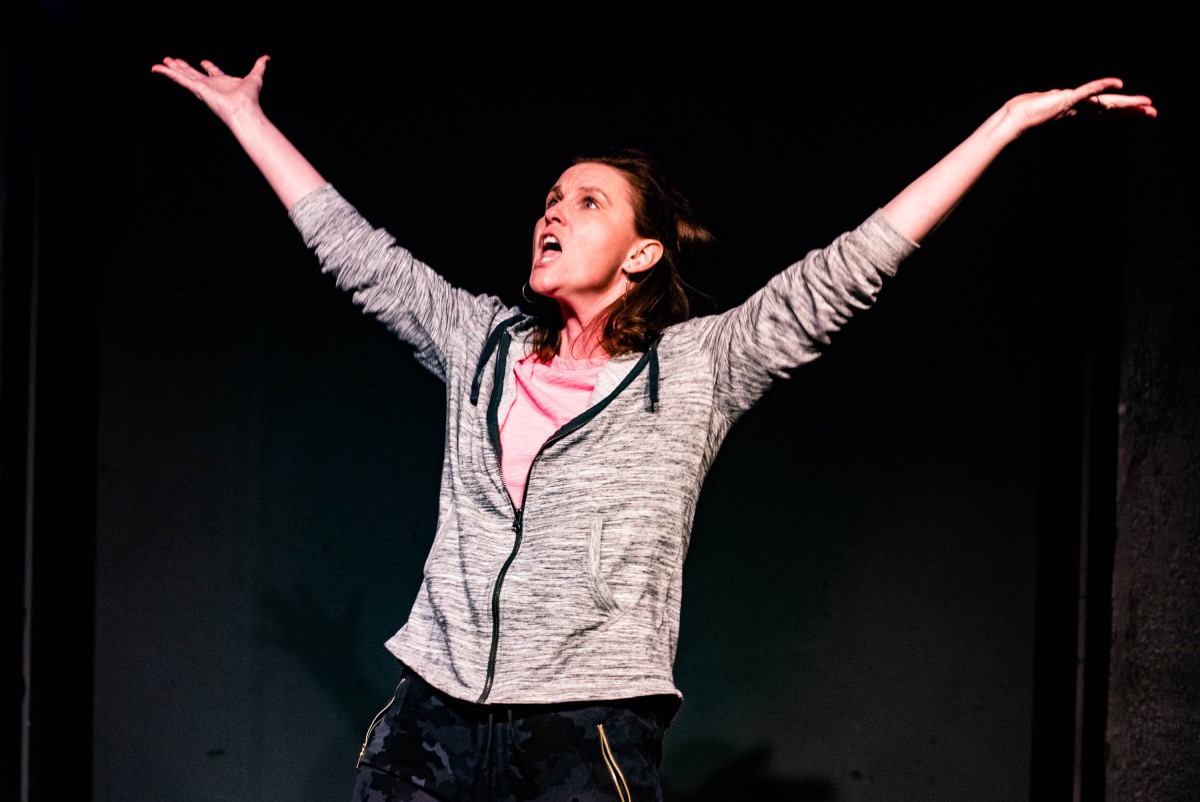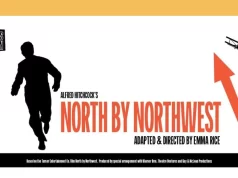There’s a controversial new president in the White House, and racial tensions are on the rise.
Directed by RTST Award winner Nancy Medina, the Royal & Derngate and English Touring Theatre’s production of Two Trains Running opens at Royal & Derngate on 4 September.
It is Pittsburgh, 1969, and the regulars of Memphis Lee’s restaurant are struggling to cope with the turbulence of a rapidly changing world. The diner is in threat of being torn down, a casualty of the city’s renovation project that is sweeping away the buildings of a community, but not its spirit.
The Artiscape spoke with Ray Emmet Browne about his role of Wolf in the play.
His previous theatre credits include Sweet Bird of Youth (Chichester Festival Theatre), Moon on a Rainbow Shawl (National Theatre/UK tour), A Raisin in The Sun (Royal Exchange), and Les Negres (Young Vic). For television, his credits include The Stranger, Mum, The Dumping Ground and Outlaws.
We asked Browne what interested him most in performing in the play?
“First and foremost I was telling a story from a Black perspective,” says Browne. “I didn’t get taught much by way of Black history at school so I jumped at the chance at doing this”. He adds “It gave me the opportunity to educate myself and hopefully others who might not have been aware of the situation for Black people in America at that time.”
Browne tells us that when he was going through the script for his audition he came across a speech where his character Wolf was “mistakenly arrested by the police and having a gun pointed at his head.”
He tells us how he “immediately identified with Wolf’s dehumanising experience” having himself experienced this first hand where he was wrongly arrested and strip-searched. So for Browne, this was “part of a story that needed to be told and was something I had to do.”
“Also..” he adds “August Wilson is a phenomenal playwright and the chance to work on one of his plays with the award-winning Nancy Medina (who I had heard so much about) was a no brainer.”
We asked Browne to tell us about his character “Wolf” in the play?
“Wolf wants to be a somebody,” explains Browne. “He wants to be relevant in his community. He knows everybody’s business. He is helpful when he can be but is still there making money out of his community in the best way he can, in a society that is unequal. At the point, we see him he is unlucky in love and a bookie in an illegal gambling game called Numbers (which was prevalent at the time in poorer black neighbourhoods in America).”
So how did Browne prep for this role?
“I started to become a lot more observant of people in my life particularly those at my barbers that exhibited characteristics I thought Wolf would have,” he tells us. “The play is set in a restaurant and reminds me of [this] West Indian barbers where guys can come in and just be guys and talk about guys stuff”. He adds “I looked at hairstyles of the period. I started thinking generally how Black Americans differ from Black British, I thought about the accents, watched more Afro American stuff on TV and YouTube that were particularly Pittsburgh or Southern States orientated”.
The play raises a lot of issues that still very relevant today. We asked Browne what he thought an audience today can take away from this performance?
“That we still live in an unequal society – [Grenfell],” says Browne, “Black communities are still struggling in this country and in America. That putting property before people is not always a good thing. When gentrification of an area happens the old community and the vulnerable normally lose out.”
Two Trains Running opens at Royal & Derngate on 4 September ahead of a UK tour until 27 November 2019.
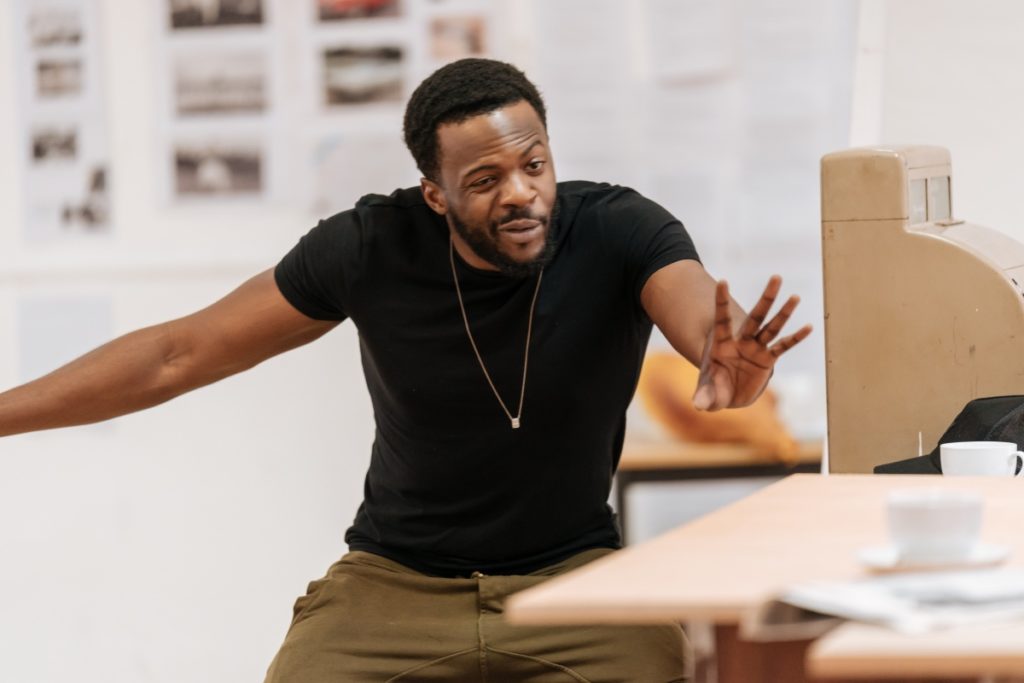
Two Trains Running. Michael Salami (Sterling). Credit – Manuel Harlan 
Two Trains Running. Anita-Joy Uwajeh (Risa). Credit – Manuel Harlan 1 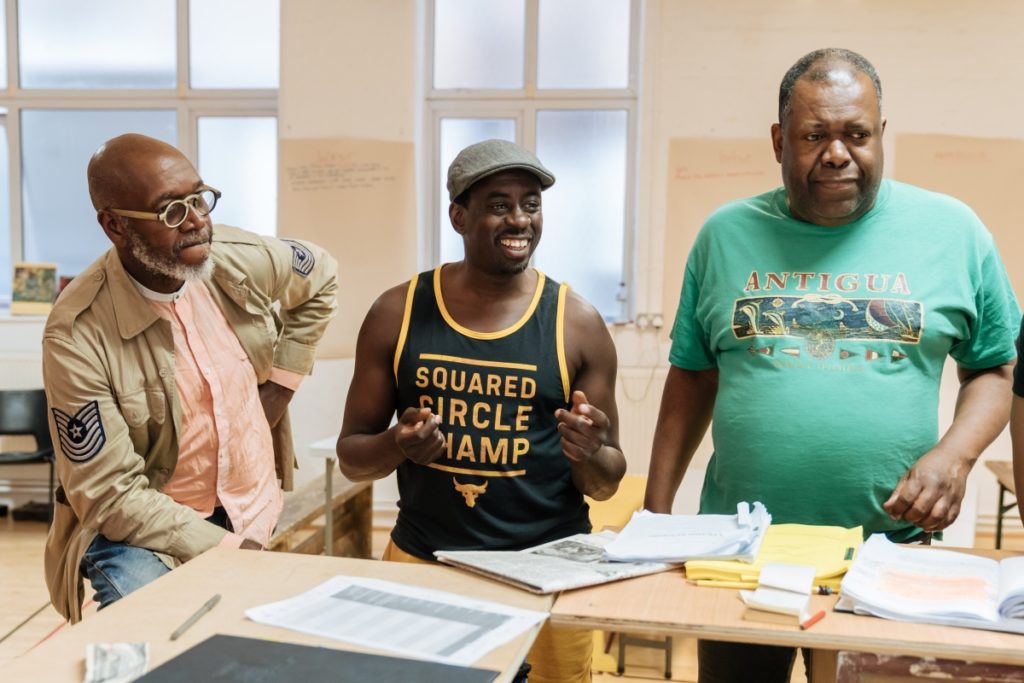
Two Trains Running. Leon Herbert (Holloway), Ray Emmet Brown (Wolf) and Geoff Aymer (West). Credit – Manuel Harlan 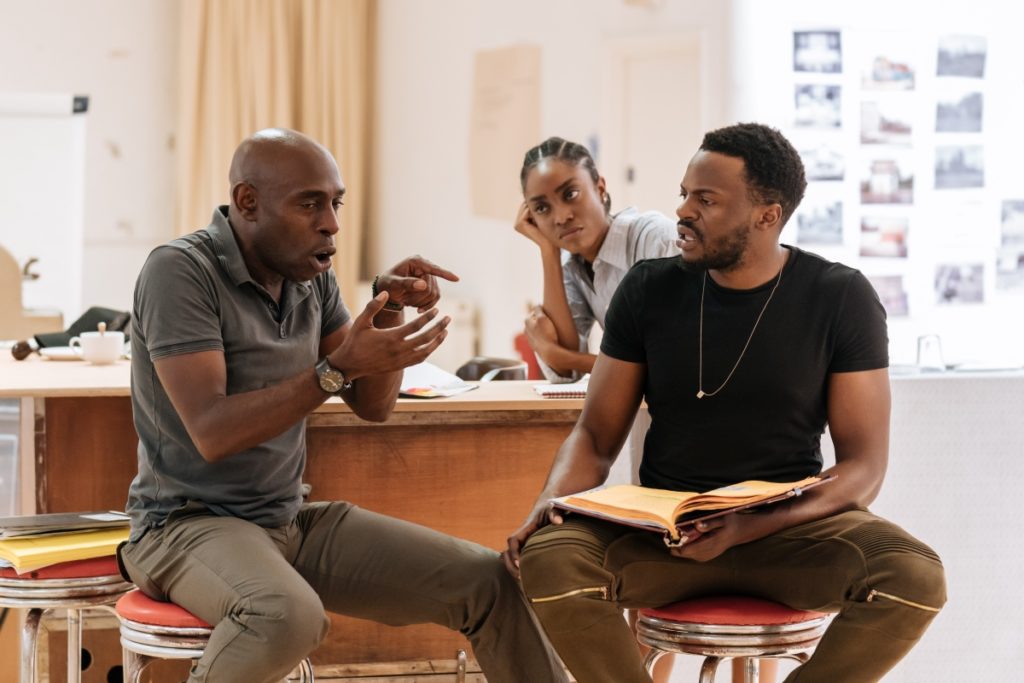
Two Trains Running. Andrew French (Memphis), Anita-Joy Uwajeh (Risa) and Michael Salami (Sterling). Credit – Manuel Harlan



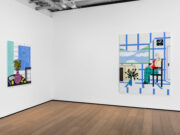
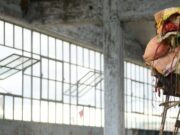


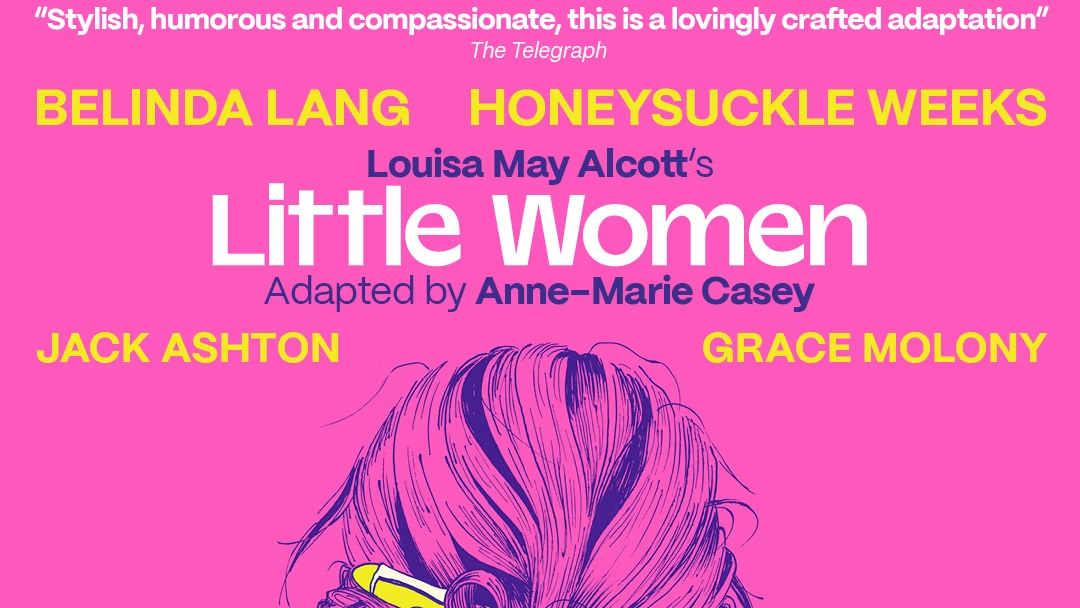
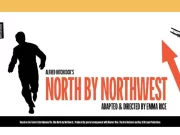
![Antigone [on strike] | Review Ali Hadji-Heshmati and Hiba Medina in Antigone [on strike] at Park Theatre, London. Photo: Nir Segal](https://theartiscapegallery.com/wp-content/uploads/2025/02/Antigone-on-strike-photo-by-Nir-Segal-D1_Standard-180x135.jpg)
